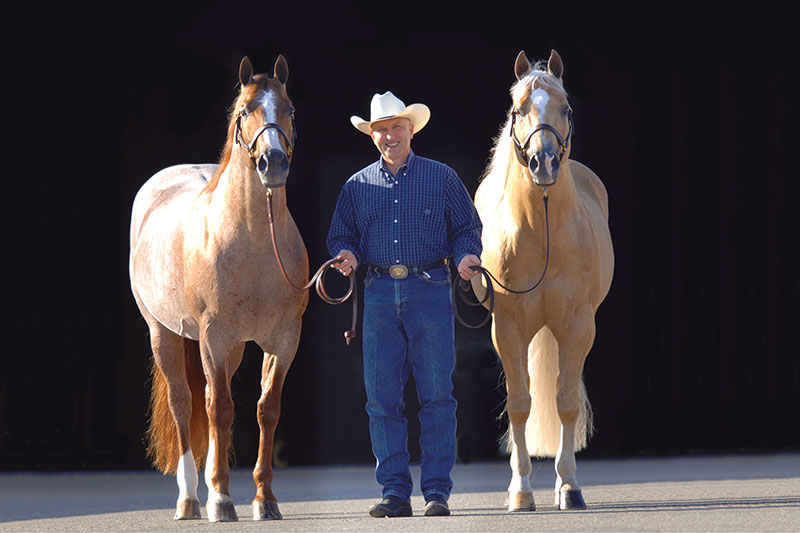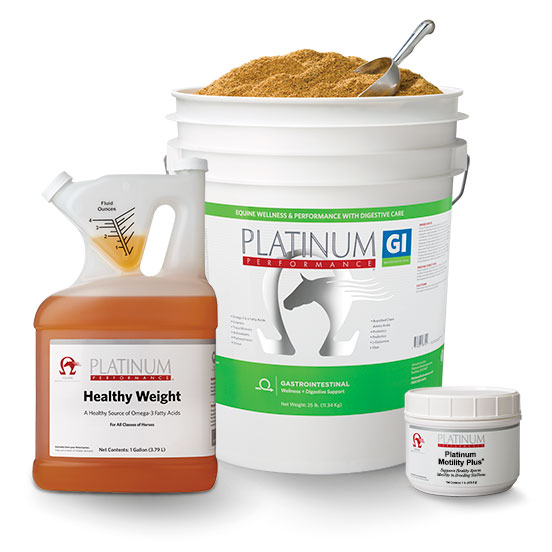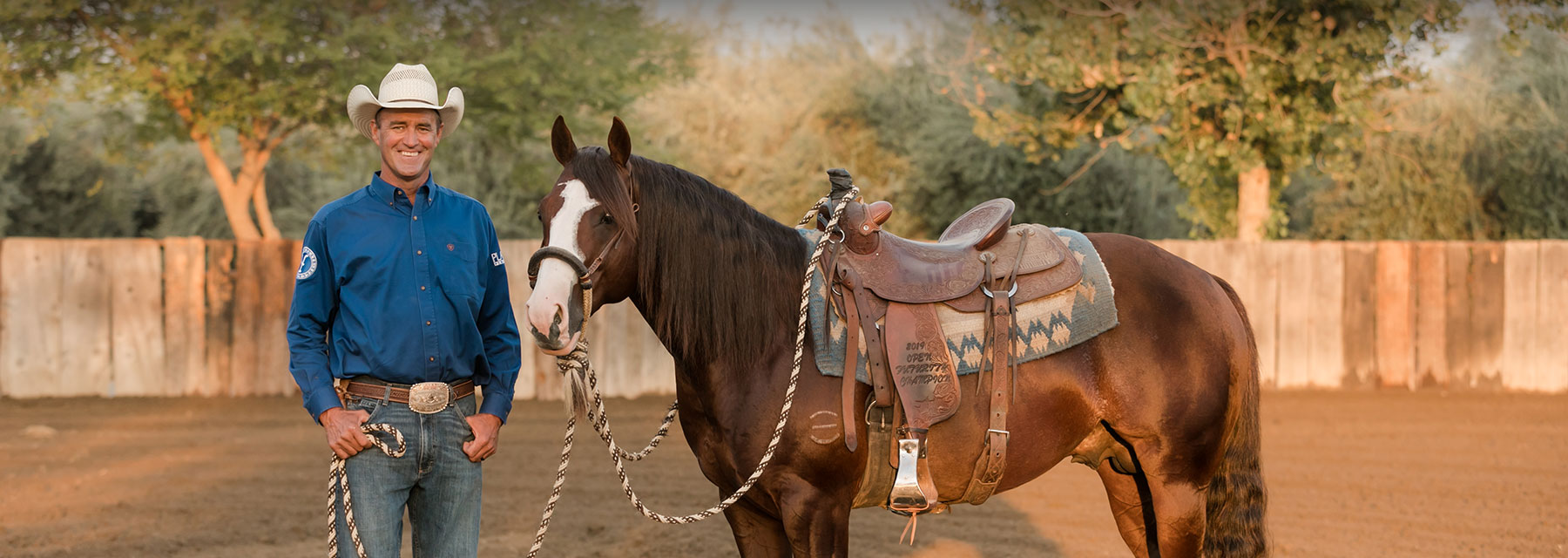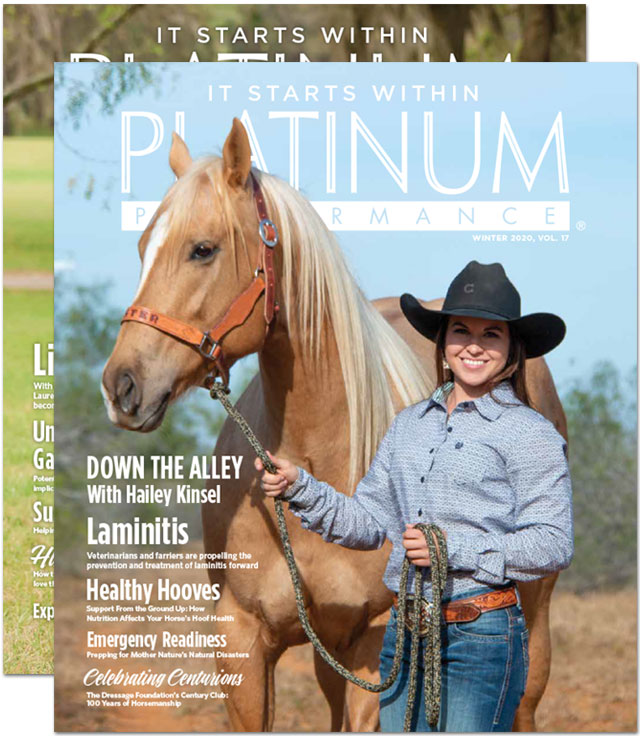Giving Stallions Every Advantage For Success with Nutrition
Nutrition plays a pivotal role in fertility and subsequent reproduction. Regarding stallions, issues such as semen quality and function, are of paramount importance. Adequate intake of omega-3 fatty acids and antioxidants is a foundation for continued reproduction; however, supplementation with these nutrients can contribute to enhanced fertility and reproductive success.
Omega-3 fatty acids, perhaps more than any other nutrient, have been studied in various aspects of equine reproduction with promising results. In terms of the stallion, the beneficial effects of omega-3 fatty acids and antioxidants have been seen specifically in the sperm membrane. “It has even been suggested that this may improve testicular function, sperm output and semen quality,” says Dr. Dickson Varner, of the Texas A&M College of Veterinary Medicine. “Those supplemented omega-3 fatty acids incorporate into all membranes — sperm membranes, liver cell membranes, the heart … virtually every cell type in the body.” It has been shown that sperm are exposed to a significant amount of free radicals, and when higher levels of unsaturated fatty acids are incorporated into sperm membranes, these cells can become particularly susceptible to oxidative injury due to the presence of free radicals. “We have strived to have a method to reduce the effect of free radical production on membrane and DNA-related oxidative injury, while providing the positive effects of supplemental omega-3 fatty acids on testicular function,” says Dr. Varner. “To that extent, we now incorporate vitamin E, vitamin C and alpha lipoic acid with the omega-3 fatty acid supplement.” Research shows that antioxidant supplementation in stallions elicits significant improvements in sperm quality in both motility and membrane integrity, as well as a decrease in abnormal spermatozoa. By combining potent antioxidants with omega-3 fatty acids, the combination is believed to be beneficial to sperm health.

The Stallion Man
Dr. Dickson Varner, of the Texas A&M College of Veterinary Medicine, is to stallions what a Texas quarterback is to his team; head in the game, with a strategist's mind and an unwavering focus on the end goal. He's worked with the finest sires there are and has been an integral part of advancements made in the area of stallion fertility.
Nutrient Fast Facts
Omega-3 Fatty Acids are essential fatty acids, indicating that they are not produced by the body and therefore must be consumed in the diet. Omega-3s are important for cellular health and can help support normal healthy levels of inflammation.
Docosahexaenoic acid (DHA) Algae is a plant-based source of omega-3 fatty acids that have potent inflammatory-modulating benefits. Specific to reproduction, the quality of a stallion’s semen is dependent on the dietary intake and incorporation of omega-3 fatty acids, particularly DHA. DHA aids in motility and fusion. Supplementation of DHA also protects against the damaging effects generally seen with cooling and freezing semen.
Vitamin E (d-alpha Tocopheryl Acetate) is a fat-soluble vitamin that protects membranes from free radical-induced damage. Vitamin E aids in glucose production and enhances the anti-arachidonic effect of alpha linolenic acid.
Vitamin C (ascorbic acid) is a sugar-derived, water-soluble vitamin with strong antioxidant actions, protecting against free radical attack. Vitamin C is required for the development of cartilage, blood vessels, Carnitine and the brain hormone Norepinephrine. Required for the synthesis of Tryptophan, Lysine and Proline, it also enhances the formation of collagen and elastin, thereby facilitating the process of wound healing.
Alpha Lipoic Acid is a vitamin-like antioxidant, sometimes referred to as the “universal antioxidant“ due to the fact that it is soluble in both fat and water. It neutralizes oxygen radicals, ionized metals, as well as a variety of other free radicals and acts as a coenzyme for whole body glucose utilization. It also increases intracellular glutathione levels, often reduced by aging, diseases and moderate/strenuous exercise. Alpha lipoic acid regenerates vitamins C and E, glutathione and Coenzyme Q10 back to their active states. Alpha lipoic acid is particularly beneficial for horses with an above-average level of oxidative stress, including high-performance horses, sick horses and breeding stallions.

Stallion Protocol for Poor Semen Quality
Protocol: Administer 1-3 scoops of Platinum Performance® GI* and 1 scoop of Platinum Motility Plus® twice daily beginning at least 60 days prior to breeding season. Feed 1/4 cup of Healthy Weight oil once daily.
SID = 1 TIME DAILY, BID = 2 TIMES DAILY, TID = THREE TIMES DAILY
Research Findings: The Need for Further Supplementation
A university study in 2005 evaluated semen quality in eight stallions receiving a DHA-enriched supplement for 14 weeks.1 At the end of the study, it was determined that DHA supplementation protected against some of the damaging effects generally seen with cooling or freezing. The authors suggested that even greater benefits may have been detected had the background diet provided a better omega-3 to omega-6 fatty acid profile. Control of inflammation through omega-3 fatty acid supplementation also is a possible route for improved fertility in males, as the inflammatory cytokine, IL-1, decreases testosterone production.2 The production of free radicals by sperm, both fresh and frozen, has been reported in various species,3 including horses.4 Although required for fertilization,5 excess free radicals can induce oxidative damage to lipid membranes and DNA and have a negative impact on fertility.3,6 The addition of antioxidants directly to semen aids in maintenance or preservation of fertility parameters in semen collected from stallions7 and other animals;8-11 however, it has been suggested that dietary intake of antioxidants and their incorporation into the lipid membrane provides better protection against oxidative damage.12
Literature Cited
1. Brinsko S, Varner D, Love C, et al. Effect of feeding DHA-enriched nutriceutical on the quality of fresh, cooled and frozen stallion semen. Theriogenology 2005;63:1519-1527.
2. Calkins J, Sigel M, Nankin H, et al. Interleukin-1 inhibits Leydig cell steroidogenesis in primary culture. Endocrinology 1988;123:1605-1610.
3. Aitken RJ, Baker MA. Oxidative stress and male reproductive biology. Reproduction, Fertility and Development 2004;16:581-588.
4. Ball B, Vo A, Baumber J. Generation of reactive oxygen species by equine spermatozoa. Am J Vet Res 2001;62:508-515.
5. Baumber J, Sabeur K, Vo A, et al. Reactive oxygen species promote tyrosine phosphorylation and capacitation in equine spermatozoa. Theriogenology 2003;60:1239-1247
6. Twigg J, Fulton N, Gomez E, et al. Analysis of the impact of intracellular reactive oxygen species generation on the structural and functional integrity of human spermatozoa: lipid peroxidation, DNA fragmentation and effectiveness of antioxidants. Hum Reprod 1998;13:1429-1436.
7. Bruemmert JE, Coy RC, Squires EL, et al. Effect of pyruvate on the function of stallion spermatozoa stored for up to 48 hours. J Anim Sci 2002;80:12-18.
8. Beconi MT, Francia CR, Mora NG, et al. Effect of natural antioxidants on frozen bovine semen preservation. Theriogenology 1993;40:841-851.
9. Alvarez JG, Storey BT. Taurine, hypotaurine, epinephrine and albumin inhibit lipid peroxidation in rabbit spermatozoa and protect against loss of motility. Biol Reprod 1983;29:548-555.
10. Pena FJ, Johannisson A, Wallgren M, et al. Antioxidant supplementation in vitro improves boar sperm motility and mitochondrial membrane potential after cryopreservation of different fractions of the ejaculate. Animal Reproduction Science 2003;78:85-98.
11. Michael A, Alexopoulos C, Pontiki E, et al. Effect of antioxidant supplementation on semen quality and reactive oxygen species of frozen-thawed canine spermatozoa. Theriogenology 2007;68:204-212.
12. Surai P, Kutz E, Wishart G, et al. The relationship between the dietary provision of alpha-tocopherol and the concentration of this vitamin in the semen of chicken: effects on lipid composition and susceptibility to peroxidation. J Reprod Fertil 1997;110:47-51.

by Tara Hembrooke, PhD, MS,
Platinum Performance®

